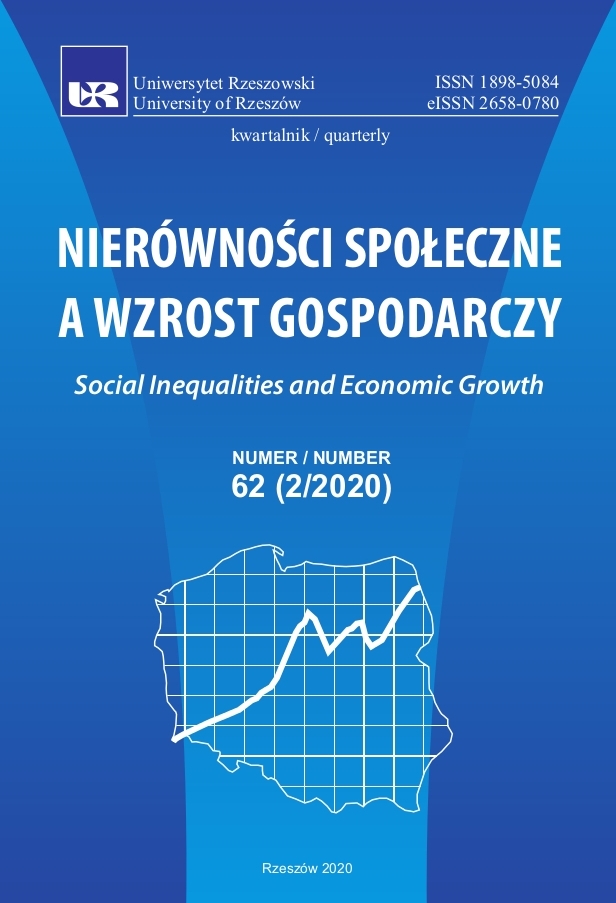Modeling the anti-crisis management of territories under the conditions of decentralisation. A case study of Ukraine
Modeling the anti-crisis management of territories under the conditions of decentralisation. A case study of Ukraine
Author(s): Natalia Iwaszczuk, Nataliia AntoniukSubject(s): Economy
Published by: Wydawnictwo Uniwersytetu Rzeszowskiego
Keywords: modelling of anti-crisis management; crisis situation of territories; decentralisation in Ukraine; territorial entities
Summary/Abstract: The article examines the process of modelling the anti-crisis management of an economy underthe conditions of decentralisation using the example of Ukraine. Under the conditions of economicreform and aggravating crisis phenomena, a task of crucial importance is developing the predictioncapability related to the effectiveness of the scheduled actions. The most problematic area in crisismanagement is the development of an effective model that takes into account the participation ofcitizens in the process of business decision-making.One of the possible solutions to this problem is to model situations to overcome the crisis,and to study the territories (regions of the country) in terms of their socio-ecological and economicstatus. The study applied the following methods: study of phenomena (objects, subjects); divisionof the territory of Ukraine into parts according to aggregate indicators; research into the variousaspects of territorial objects; and the identification and analysis of interrelations between the factorsand results.On the basis of the developed approach and results of the study, a model is suggested foridentifying the crisis status of territories in a decentralised environment; the latter takes the followinginto account: availability of resource and labour potential; social, ecological and economic componentsof the development of territories; risk factor for the advent of crisis; and the overall coefficient ofdecentralisation.The introduction of an algorithm was suggested for grouping objects, which takes into account thelevel of improvement in anti-crisis management under the conditions of a decentralised environment. Theuse of the cluster ranking methodology, which, unlike the existing ones, includes calculations based ontaxonomic metrics, was rationalized. The research allowed the introduction of a differentiation approachto creating development plans for the various types of territorial systems included in the clusters. Thedivision was made in accordance with the crisis situation in the territories to allow development on thebasis of sustainability in the context of introducing decentralisation
Journal: Nierówności Społeczne a Wzrost Gospodarczy
- Issue Year: 2020
- Issue No: 62
- Page Range: 183-201
- Page Count: 19
- Language: English

